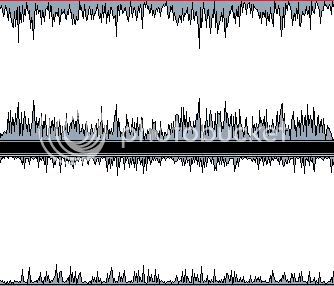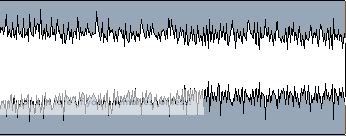Are you sure that the sound engineers are not merely trying to lower the quantization noise by increasing the dynamic range for the vast majority of the energy in the signal? On one hand you have people complaining about the loudness war, and on the other you have people complaining about reduced audio quality because of signal digitization (partially although not entirely caused by quantization noise). My old ears aren't sensitive enough to hear either end of the tradeoff (probably never could because of listening to music too loud when I was 13), so I'd be interested to find out if the anti-quantization-noise people are also the anti-loudness-war people, and if they recognize the tradeoff.
You bring up a good point.
But the difference between compression and normalization is that the former reduces dynamic range so that the latter, which orients the highest peak at a defined level (usually 0dB or just under), raises globally the level of the whole track by that same shift amount while preserving dynamics.
In other words, if your track is peaking at -1dB, you can normalize it to 0dB, raising the gain of the whole track by 1dB and preserve dynamics. Or, you can compress and limit the peaks so for example, it peaks at -8dB. Now, you've got 8dB of normalization potential.
This is of course all assuming you're in the camp that believes mixing really hot is a good thing. There's a growing trend that believes the joy of -18, -14, and -20dB are the golden spots for mixing, depending on content. Those guys will tell you that the user has a volume knob for a reason and mixing hotter for gain is self-defeating. They'll also tell you that with modern 24bit or better sound, using all of the bits for a sample is not necessarily gaining you anything audible. It's no longer necessary to track hot, compress, and punch the gain even further. Traditional analog workflow is returning because it is now achievable in the digital domain, with great results.
Do SX's latest releases suffer from loudness war attitude? Yes. Metal in general suffers more than other genres because being "loud" is an inherently preferential characteristic to the style of music it represents. Add to that the typical metal song structure, wherein dynamics are eschewed for a more in-your-face-all-the-time sound, and quickly it becomes apparent why after compression, there is nothing left but pink noise.
Distorted guitars + constant riffs with few quieter passages + "loud rules!" = bad production recipe, with a number of very notable exceptions of great sounding metal albums.



